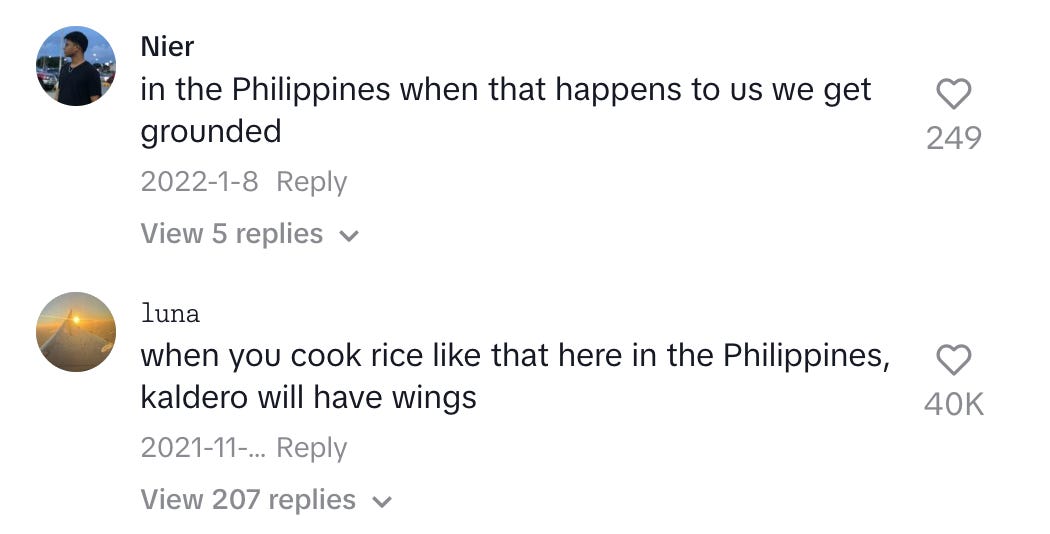I’ve wanted to write about this for a while, and I’ve started, stopped, popped, locked, and dropped it routinely. Why? Because I’m self-conscious and afraid of stating the obvious, worried about writing something cliche instead of just sharing what’s on my mind. Continuing with the theme of recent Consumed musings (and maybe the theme of 2025 for me), I’m pushing through and trying it anyway.
Social media is making people embrace anti-social behavior. I don’t want that to sound like a revelation, because it isn’t. It just feels like it’s coming to a head as of late. I’m less interested in the amount of time we spend on social media, or whereabouts on social media we’re spending that time — instead, I’m consumed by how we engage with others on social media and how time spent on social media shapes how we interact with one another in-person.
The great how I’m referring to mostly takes place in the comments of any social media post but it also goes down in the DMs. There are still some great, pure comments sections out there - take the YouTube comments of any song that came out pre-1996 for example, or occasionally the comments section of my TikToks.
Exhibit A: A random song (tbh, a lowkey classic) where the comments are generally earnest and wholesome.
Having a following of ~190,000 people on TikTok and 113,000 on my cooking Instagram have given me a precious front-row seat on bizarre internet discourse. Of course, there are thousands of people who comment “RECIPE???” on any given post, even when I write “recipe is in our cookbook!” in the caption. That’s become an expectable baseline for anyone creating food content, but it’s still frustrating that people on the internet have the capacity to gawk out a comment asking for a recipe without reading a caption. What happened to reading captions, especially when they’re about a sentence long?!
I think of the people who demand recipes on every post like the seagulls from Finding Nemo.
The seagulls and their comments are generally harmless, just annoying as hell.
The next level of comments are where things get weirder: the armchair experts, or the snarky ones. There are people who comment that I’ve burnt rice when I’m making tahdig, the pinnacle of Iranian cuisine that is precisely burned rice. There are Iranians who comment on my video saying my crispy rice isn’t good enough, or it lacks merit because I used a rice cooker, some who ask why we’re celebrating tahdig at all, something we enjoy at nearly every meal. I wish I could dismiss that with “it be your own people…” but of course, there are commenters from other parts of the world saying the rice would bring dishonor upon their families and result in a beating. A robust comments section is exactly what boosts a video’s performance on these algorithms, so as the dialogue grows, so do the views, a bizarre virtuous cycle. Taking five minutes to pull up some random examples, here are a few relatively innocent ones since I don’t have the wherewithal to go through the dregs:


I don’t share this to ask for sympathy, I share it to ask: What’s the thought process here? What neurons are lighting up in people’s brains when they post their snarky comment? What satisfaction do they gain being a rude anonymous commenter on someone’s page? Why is this how someone chooses to use their time — especially when they could be directing that effort towards anything else, and it would be more meaningful? When the world feels increasingly cruel and we’re all just trying to find our way through, why is this how some people choose to ‘engage’ online?
I wish I could attribute these commenters as edge cases, maybe some isolated people who feel miserable, but there are just so many of them. A Brooklyn coffee shop owner took to social media to ask for help from her community in the wake of massive rent hikes, something that nearly everyone could get behind and support still found some hateration in the comments:
We’ve lost the plot. If we can’t support someone actively struggling, then I guess we can’t enjoy crispy rice either. Maybe we’ve been so inundated with content that some people have lost the capacity for enjoyment and turned to this instead.
I’ve written this in the context of relatively innocuous videos but I’d be remiss not to acknowledge everything else on social media. We have an intimate view of genocide, war, famine, and mass atrocities in the same feed alongside ‘lifestyle content,’ food videos, and memes. With one million “RECIPE?” comments, we ended up with a recipe for a widespread lack of empathy, a dearth of media literacy, and parasocial relationships (positive or negative!) that don’t fully translate into the real world.
This reminds me of something I glossed over in college, Jean Baudrillard’s concept of hyperreality: “a condition in which what is real and what is fiction are seamlessly blended together so that there is no clear distinction between where one ends and the other begins.” Nearly 70 years ago, Baudrillard believed we made it to the final stage of hyperreality, that we inhabit a world where simulations and representations replaced genuine experiences and realities. Engaging on social media, a simulation of actually engaging with people, has replaced genuine social interactions. A one-way dialogue in the comments makes someone empowered to say whatever they’d like, because even a snarky response probably wouldn’t elicit the shame of being reprimanded in person.
A friend in the groupchat said “people aren’t getting their asses beat” — not unless they’re making crispy rice in specific pockets of South East Asia — and there’s some truth and humor in that. Even an eye roll or slight disapproval can be enough accountability for someone.
Two things I’ll leave you with:
Research shows that daily ‘micro-interactions’ with strangers results in greater well-being, reduced loneliness, and a stronger sense of belonging. Even on the commute! In a 2014 study on Chicago Public Transit, passengers who were asked to talk to one another were happier and had a more enjoyable commute than those who didn’t engage with others.
Shout out to Professor Rachel Barney who wrote a brilliant essay on trolling in the style of Aristotle for the Journal of the American Philosophical Association. It will resonate and it will surprise you.
Thank you to my new and familiar consumers, an extra special thank you to those who paid for this newsletter. See you in a few days for a special Norooz-themed Friday Five.










